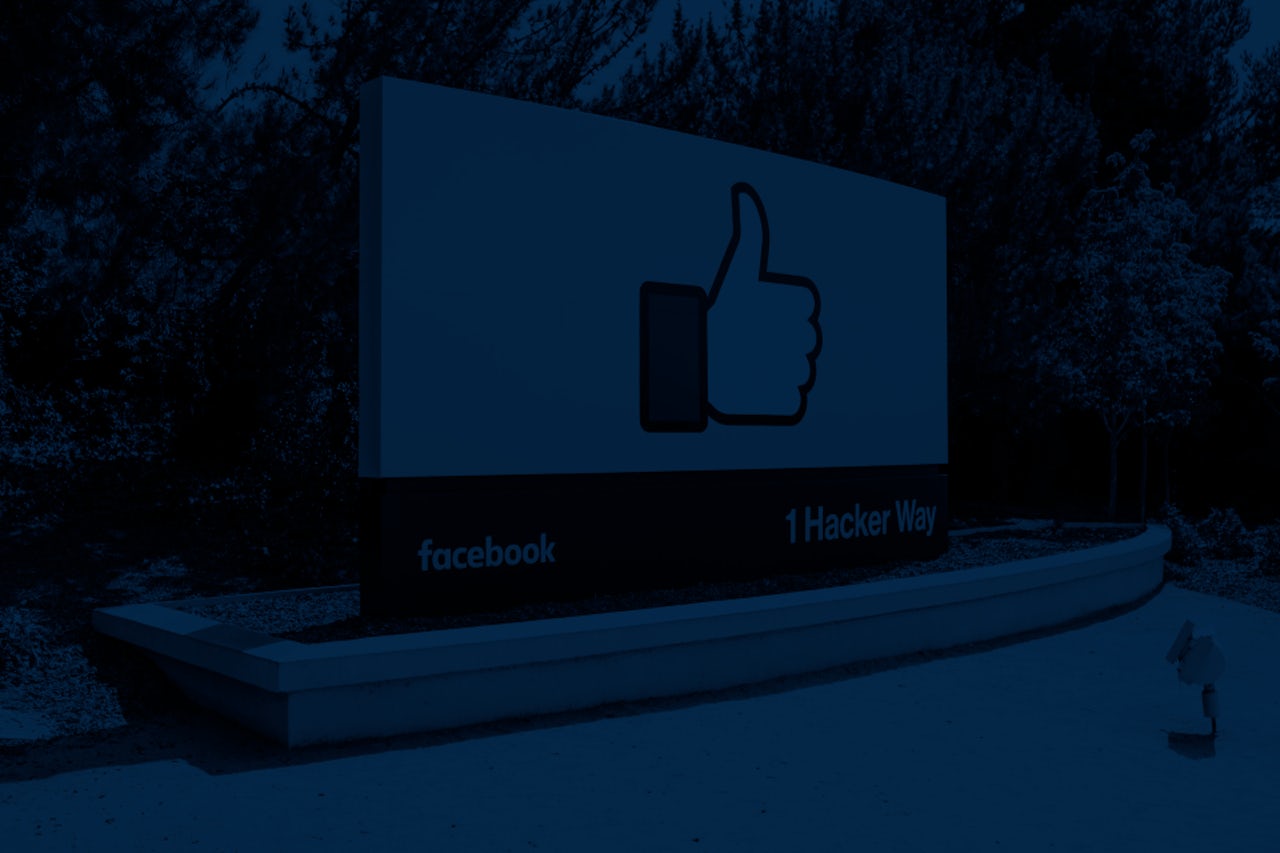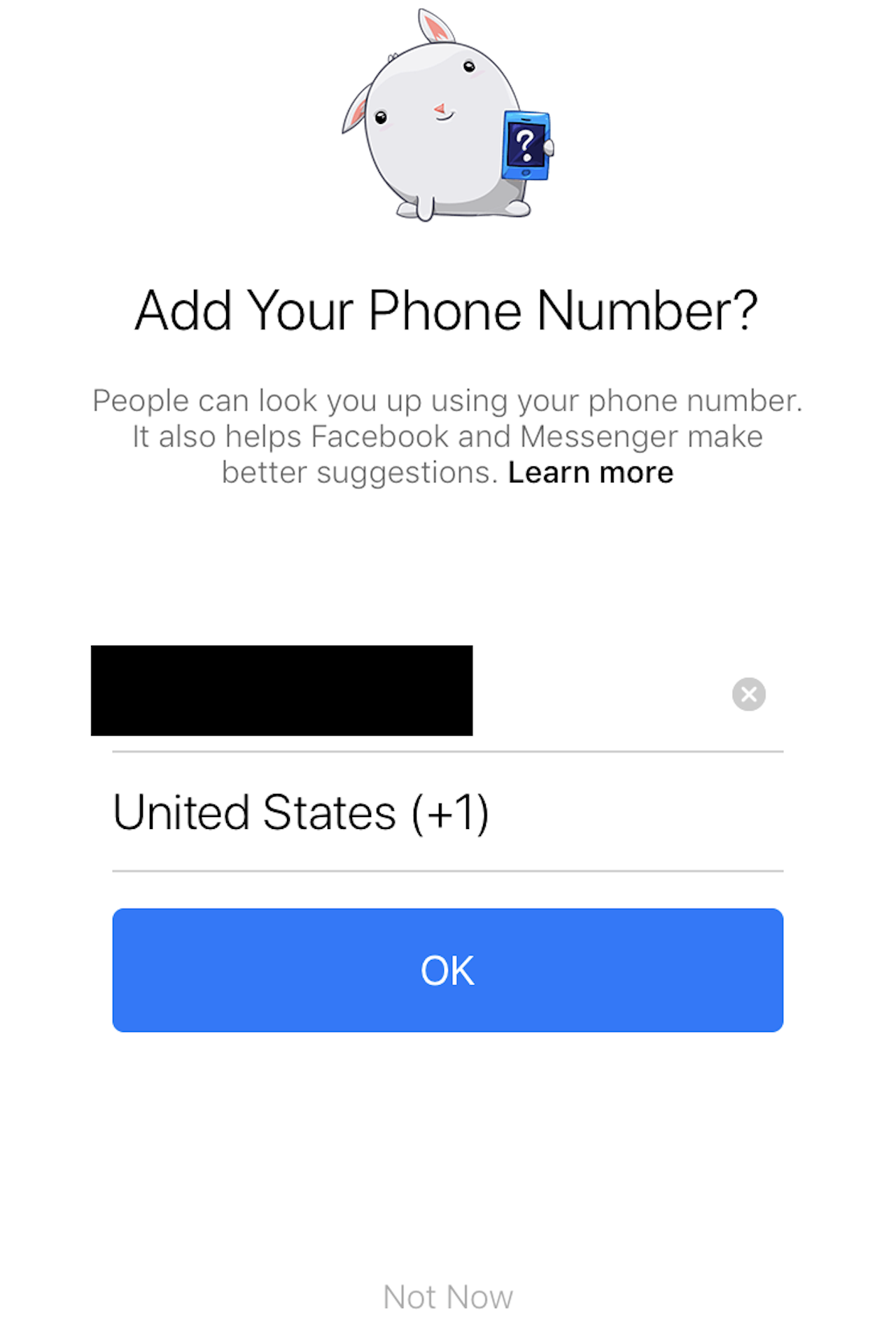Something that often seems lost in the constant news of Facebook scandals is that, in addition to being an utterly negligent and incompetent company ( etc., etc., etc. ), their products are bad. Navigating their apps feels sort of like trying to watch a sitcom on an illegal Russian streaming site circa 2007.
They look bad, for one. They’re ugly, with cluttered interfaces jammed with propaganda and ads, like if The Million Dollar Homepage ran a social network. The user experience is also bad. They’re minefields of unethical and persuasive design, attempting to extract as much of our time and attention as possible.
To get a sense of just how bad, let’s take a closer look at Facebook Messenger. Recently, I had to (regrettably) log in to Facebook on my phone to find the address for a party. Once on, I got a notification that someone sent me a message. I tapped it, but rather than show me the message, it sent me to a splash page telling me that I needed to download an entirely different app, Facebook Messenger, in order to read it. I took the bait.
What followed was a baffling and felt like dark satire. Let’s relive that journey together:
- After logging in, the app sends you to a screen asking you to turn on notifications. There are two options, Not Now and OK. A little arrow bounces under OK, to cajole users into tapping it, because making sure users have notifications turned on is in the best interest of Facebook ($$$ ).
- Next, a cartoon bunny asks you if you want to add your phone number to the app. Supposedly, it’ll help people find you, but it probably also helps Facebook do some evil ad tech dark magic. There’s a big blue button that reads OK (all caps) and then, way down at the bottom of the screen in grey ~9 pt. font, Not Now.
This is a great way to trick users into accidentally giving away their personal info, especially if they’re visually impaired, which seems vaguely predatory.
- Tap Not Now at Step Two and you’ll get a pop-up asking if you’re sure you don’t want to give Facebook your phone number. If someone were that persistent in real life, you would absolutely not want to give them your number.
- It then asks you if you want to “Find Your Phone Contacts on Messenger” — a highly deceptive way of asking you to give the app permission to continuously upload your phone contacts so that Facebook can have them. What could go wrong? Again, the Not Now option is hidden at the bottom of the screen.
Also interesting is the language being used here: instead of a simple, definitive NO it’s the flexible and ambiguous Not Now. It subtly undermines user agency. You have a choice, sort of, but only a temporary one.
- Tap Not Now at the previous step and you’ll get another pop-up telling you that “your contacts won’t be uploaded.” Well, huh. Note that the menu options here are flipped. Whereas in the previous pop-up, the option on the left (Not Now) confirmed that you didn’t want to give Facebook your info, this time tapping “cancel” returns you to Step Four. The OK on the right confirms that you don’t want to give them info. Confusing and weird.
- Here, another screen asking you to turn on notifications. Remember when you already made this choice? Since then, Mark Zuckerberg made $700 trillion dollars (give or take).
- Ah, good, another pop-up, asking if you’re sure you don’t want notifications. At least this is probably the last step, right? Now you can finally access your —
- alskdgjalkma;erovaerlmarlgkjaerglaekrjgeragsldskajf;lakvkma.lg;aeoirgj
So, eight unnecessary steps just to read a message someone sent you. More, if you count being forced to download the separate app. Such an arduous process goes even against Facebook’s own rhetoric about the app, which claims the company asked “people” who told them that “simplicity is the top priority for them in a messaging app.” Who are these people, and how do they feel about actually downloading Facebook Messenger?
For the sake of comparison, here’s how many steps it takes to do the same thing when someone sends you a text message:
- Open it.
After I survived the notification maze, I could finally read the message. It was just an automated alert sent by Facebook to inform me about something the company calls a “friendversary” (“friend-anniversary?” “friend...adversary...?”). They made it seem like a close friend was sending me useless corporate spam. So I deleted the app (this took three steps).
Does it matter that a free app is bad? We get what we pay for, right?
Kind of. But Facebook is still a frightening monopoly, and many people don’t have the choice to leave it. Even those who do quit are still gripped by its slimy tentacles. Other tech companies, meanwhile, are forced to resort to similar shady tactics in order to compete.
So we should be concerned that Facebook’s hunger for constant growth — or even just the perception of growth — so permeates all aspects of the company that they actively create worse experiences for their users. What else are they willing to do to get higher numbers?
More broadly, it indicates the utter hopelessness of trusting any company that profits from the attention economy to perform ethically. It’s a business model that’s inherently exploitative. So long as Facebook makes money from advertising, nothing will change.
Most likely, things will get much worse. The company is already planning to introduce spam to Messenger. As Facebook COO Sheryl Sandberg explained in the company’s 2018 Q3 earnings call, “It’s still early, but we’re exploring how we can help advertisers reach people in Messenger through Sponsored Messages and Inbox Ads.” Those notifications that they so desperately want you have turned on will soon be help deliver pop-up ads directly to your phone.
Not just for Messenger, either. The founders of Facebook-owned Instagram and WhatsApp recently quit, reportedly because of disagreements with Zuck over the future of their products. In that same earnings call, Sandberg revealed that the company will soon charge companies for the ability to send users messages on WhatsApp, essentially betraying the privacy principle that WhatsApp was founded upon. Instagram — already an overwhelming carnival of scammy ads — recently introduced a new annoyance, a permanent, unclearable red dot on its IGTV icon, a canard likely intended to artificially inflate engagement numbers. Meanwhile, Facebook is investing in building VR worlds in an effort to control reality itself, one where we can try to talk with our friends as infinite notifications cascade and attack.









